What is weaning in a baby? Is there any importance of weaning a baby? When should you start weaning your baby? How to wean toddler from breastfeeding? I know all these questions must be popping up in your mind.
Weaning your baby describes as a way of introducing the baby to their first food without relying on commercial baby food, purees, or spoon-feeding. This is a phase of shifting from breast milk to solid food.
By the end of the article, you will have a good chunk of information on how to wean your baby and the weaning guidelines.
What Is Weaning?
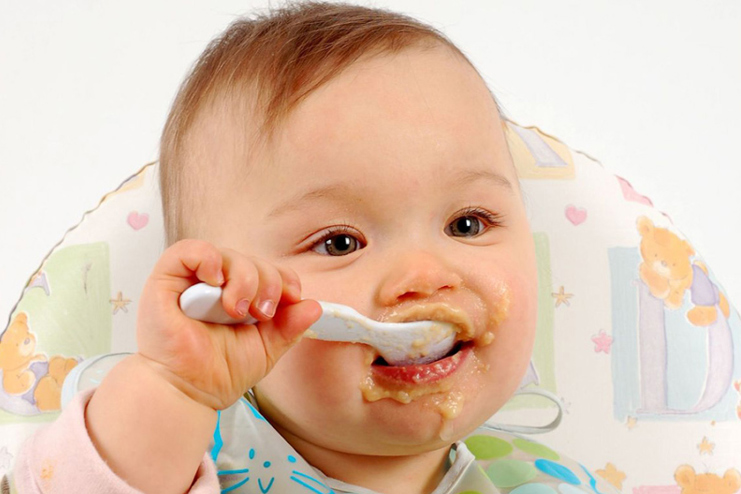
Weaning is one of the natural and common stages of baby’s development in the initial stage of life. It is a transformation stage of giving or exposing different solid food than of breast milk.
It is moreover described when one stops nursing and provides all the nutrition from the sources other than breast. The term usually refers to when one stops breastfeeding. This frame of transformation doesn’t mean the end of the intimate bond between you and your baby.
This is just a different form of nourishing in an alternative way. The baby weaning has popularly grown 15 years ago and has been in practice.
The weaning a baby leads to offer baby sized pieces of regular foods (R) from the get go.
The weaning is a term that is used to describe the process of shifting from the following process-
- Breastfeeding to bottle-feeding.
- Breast- or bottle-feeding to a cup.
- Breast- or bottle-feeding to solid foods
Importance Of Weaning Baby:
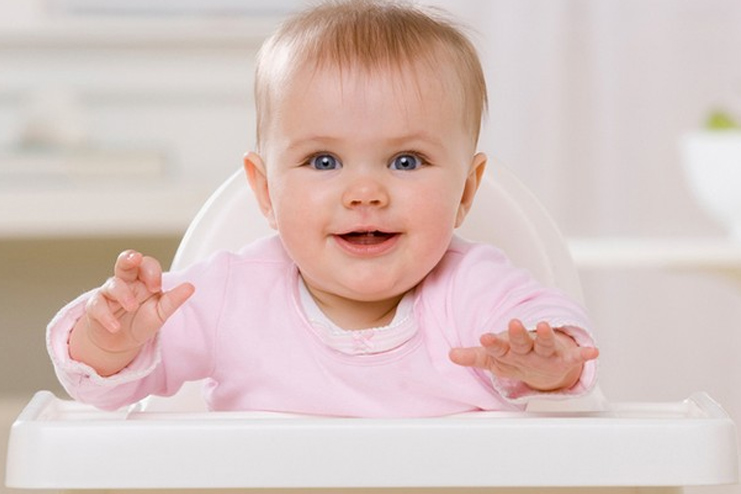
Weaning a toddler has many useful benefits right from eating behavior to better long term health benefits.
1. May Promote Good Eating Behaviour:
This matters first and foremost thing as it emphasizes letting the baby to choose how much to eat and what to eat and what not to eat. They are just an active participant in the feeding process. Weaning your baby promotes a healthy eating behavior (R) later in life.
As per one study, the babies weaned using an approach were more in touch with their hunger and had a better ability to recognize feelings of fullness around 18–24 months of age than with the normal feeding approach. (R)
Weaning a baby helps to develop a healthier eating pattern as I mentioned above which is based on appetite rather than any external factors.
2. May Protect from excess weight gain:
This is another plus point or importance of weaning baby. It promotes the child to gain excess weight in the later phase of time. As in the weaning process, babies are allowed to grasp foods and bring them to their mouths at their own.
As per one of the study found that infants who were spoon-fed tended to be around 2.2 pounds (1 kg) heavier at 18–24 months than those weaned using weaning guidelines were also around 2.4 times more likely to be overweight (R)
It is also observed that the children who are weaned off breastfeeding have a better opportunity to stop eating when full compared to spoon-fed infants. This, as a result, brings into focus that there may be at a higher risk of being consciously overfed. It also shows that the children has the weight in the normal range than the traditional wean babies.
3. May Reduce Fussiness Around Food:
It has been proved that it reduces the picky eater behavior in kids as it allows to accept the wider variety of food. If you introduce this on an early stage in child life, then it has ample number of benefits for the child at a later stage of life.
As per studies, babies were less likely to be rated as fussy eaters by their mothers at 18–24 months of age compared to other spoon-fed babies. It also is shown that the baby is less likely to prefer sweet as the baby wean by the traditional wean process.
This weaning guideline helps in giving a caregiver response to the signals of hunger and feelings of fullness communicated by the child.
4. May Make Feeding Your Child Easier
As per the expert, doctors, pediatrician, it is suggested that using this method makes feeding the child easier. In general, the child is trusted to be self-selected they know how much to eat and what to eat.
As per the research, the mother using the weaning tips for babies lowers the level of anxiety during the weaning period. It also has less concern over child weight.
When Should You Start Weaning Your Baby?
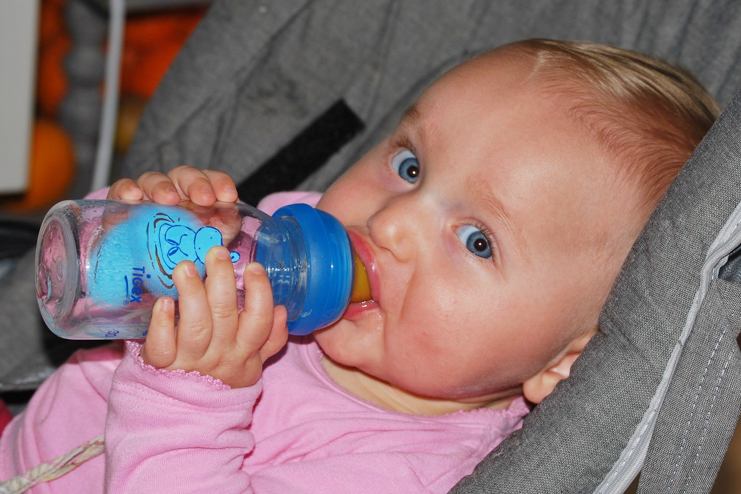
As per the health expert, they recommend the babies to begin getting solid food at around 6 months of age. (R). Basically, six months is referred for the babies to eat the nutrients which are generally not found in milk.
The absence of iron and zinc in milk prone the babies to eat solid food by the mothers as this is an important element for the growth band development of the baby. So, that is the reason behind giving solid food as it gives all the essential nutrients to the baby.
Before you give the solid food to baby, you just have to see and observe certain sign and symptoms of development such as-
- Sitting up well
- Good head control
- Can hold food in their mouth and is willing to chew
- Can pick up food and put it in the mouth
- Is curious at mealtimes and keen to get involved.
When you should start weaning your baby all depends upon how ready your child is to start weaning. There is no particular right and wrong time to start. But overall, it is best to wean a baby from a bottle by 12 to 18 months.
As per the American Academy of Patrician, the baby should be breastfed until the age of six months. (R)
Signs Baby Is Ready To Wean From Breastfeeding:
As I said above also there is no particular right and wrong time to start. But overall, it is best to wean a baby from a bottle by 12 to 18 months. But, before of that, you should check with a few sign and development of the baby-
- Seems hungry earlier than usual.
- Can sit up without support, and has good control of his neck muscles.
- Holds food in his mouth without pushing it out on his tongue right away.
- Shows interest in food when others are eating.
- Opens his mouth when he sees food coming his way.
- Can let you know he doesn’t want food by leaning back or turning his head away.
Where as there are certain times when you shouldn’t start weaning from breastfeeding. Such situations include-
1. If the child is allergic:
Make sure before you expose the solid food to your child, check with allergens. If you or your partner has allergies, then just delay the weaning. Make sure you wean after 1 year of age of your child.
2. If your child isn’t feeling well:
If your child is ill or teething, then postpone weaning until he or she feels better. The same is also repeated with you.
3. A Major Change Has Occurred:
At this point in time, avoid initiating weaning during a time of major change occur in your family. And if your child care situation has changed, then under such situation delayed the weaning process from breastfeeding.
How To Wean Toddler From Breast-feeding?

There are certain ways that can help you to wean toddler from breastfeeding, some of the ways are as follows-
1. Feedings:
This is a very simple and easy tactic of weaning your baby. For this weaning guidelines, you just have to increase the length of time between the feeding of the baby.
As per the expert, you have to increase the length of feedings by 30 minutes each week. If the child is hungry then feed them with some solid food. And if the child is less than a year then feed them with formula milk.
2. Shorten Feeding:
This tip is another reciprocal to the point above of the article. This a way where you need to shorten the feeding session. As per expert recommendation, cut each feeding time down by one minute per week.
If the babies get hungry, then you can use any other supplementary food other than breast milk. You can feed them breast milk or express the breast milk in a bottle. You can also give whole milk if the baby is 1 year old.
3. Skip Feeding:
Here come another valuable weaning tips for baby. You can remove one breast feeding session at any time in a day and at that period of time, replace it with breast milk in a bottle. This will also avoid upsetting the baby.
4. Make time for cuddles:
As per the studies, many toddlers nurse for comfort as well as nutrition. So it is very much important to have someone other than you to cuddle with a favourite book or snuggled with a rocking chair.
5. Replace Or Distract:
Another weaning guideline that helps the baby to wean off breast milk is that you can nurse and plan distractions or substitution that they are used to it and they will enjoy it.
You can have or offer the baby the favorite snacks or game instead of breast milk at around or during routine feeding time.
6. It is Ok to say No:
Sometimes “No” works great at certain circumstances or situation. It is important to give a sake of freedom to say “no”. If you want to respect the feelings and desire of your child then you should do what works for you.
When your child gets older and has grown the tendency to pinch, rough house, forcefully with your breast then this is a very true aspect that works great. Saying “no” doesn’t make you a bad mom.
7. Plan for the Unexpected:
There are certain unexpected things that can happen while weaning a baby such as illness and injury forces the separation from your baby. So you have to be prepared for it.
This unexpected situation brings about an abrupt obstacle in the weaning process of the baby. So for this have a supply of frozen breast milk on hand to get rid or help to ease the baby transition.
8. Relieve The Pressure:
As we all know that at the process of weaning a baby the body adjusts to making less milk and where as the breasts may feel full too. So in order to relieve fullness and engorgement, it is very necessary to express milk by the mother. This will make them comfortable.
There are certain remedies like using ice packs or cabbage leaf to get some relief.
9. Weaning can Be Fun:
Weaning from breastfeeding can be fun too. This is a superb way to deal with weaning toddler from breast milk. Just allow the baby to touch and hold the food if they wanted or wished for it.
First, they may not like to hold on the spoon but try another day. It is said that practice makes a man perfect. They initially will not show interest but don’t worry, they will gradually get it up. But make sure you don’t force them.
10. Watch your baby new learning skill:
This is the best stage where you will observe your baby skills and you will simply love it. The very first mouthful may come straight back out because the baby has pushed their tongue forwards as they do when they are breastfeeding or drinking from a bottle.
This may push their tongue backward towards the food and will stay in the baby mouth as they will able to swallow it.
11. Offer a very small taste:
This is an important tip needed to follow while weaning a toddler. So, start off with a few solid foods first. They may not like first but keep on trying. Make sure the food is cooked properly, cool enough, and should taste good. Before you give the food to your baby, do check with the taste.
12. Pick the Right Food to start weaning:
Here is another weaning tip. Before you plan to start the weaning process, do pick the right food to start to give the baby. So you can start with a smooth puree to your baby. You can include the puree of fruits and vegetables like apple and pear or potato and carrot or sweet potato and cauliflower.
You can also use finger food for the baby. Just make sure you don’t give soft round foods like grapes or cherry tomatoes that can choke on your baby throat.
13. Choose the right time of day for weaning:
One of the first and important weaning guidelines always check with the mood of your baby when you start weaning. It is obvious that the baby won’t be in the mood to eat food if they’re sleepy. So it is very important to choose a time of day when they’re awake and alert.
Don’t be in a hurry to feed them. When it comes to weaning mums you need all the support they can get on what to introduce when and how to get the baby to eat a wide range of solid foods for the proper nutrition value.
14. Weaning a baby involves a taste exploration:
As we all know weaning is an incredibly exciting time for a baby’s development as well as for the mother because of this the time where the baby tries out new tastes and textures for the first time. It is a stage where the babies push food around their mouth, push it out by mistake, push away the spoon and sometimes grab for more.
It is the place where the baby with you and the floor get sprayed in mashed fruit. This happens because you’re only one to just getting started.
Some More Weaning Tips:
- Make sure you be patient and take it in a gradual approach as much as possible.
- Always allow your partner or another caregiver to give your baby a bottle. This is because the child is more likely to take a bottle from someone other than you. They also need change.
- Just be ready to wean at about six to nine months of age of your baby. The addition of solid foods at this time is also helpful for their better development.
- Introduce a comfort object to your baby either a blanket or stuffed toy as that may help in soothing during the time of transition.
- In order to replace the special time that you share together when you breastfeed, make sure you spend time rocking, cuddling, and playing with your baby.
- Keep in mind that as a child gets older weaning may become more difficult. A toddler may be much more reluctant to give up breastfeeding.
Foods To Eat And Avoid When Weaning:
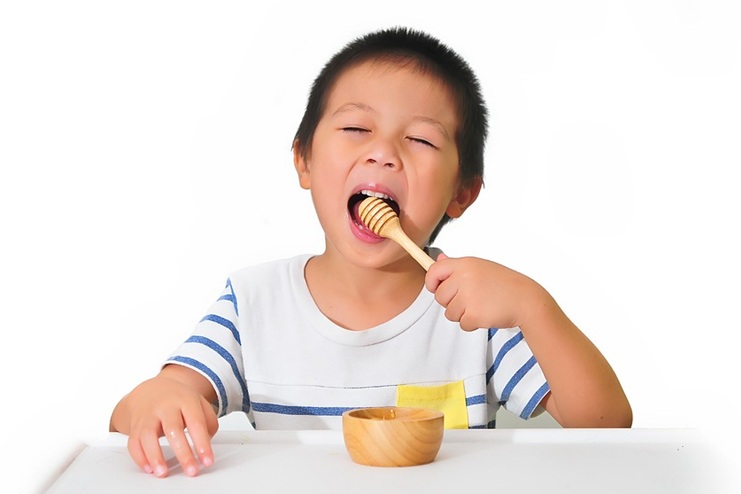
Not all foods are good enough to start with weaning from breast milk. There are certain foods that will help thew child a lot while weaning a toddler- some of the foods are-
- avocado
- baked, skinless potatoes or sweet potatoes
- banana
- beans or peas, slightly mashed
- de-segmented orange without inner skins
- ground meat
- ground nuts and seeds
- Hard-boiled egg
- lentils
- oatmeal
- salmon
- soft-boiled green beans
- steamed or shredded carrots
- steamed broccoli
- thawed or slightly mashed berries
- unsweetened yogurt
In most importantly the baby food should be rich in iron and other essential nutrients that are required for the growth and development of the babies. Some of the iron rich foods are meat, eggs, fish, beans, and leafy green vegetables.
Foods To Avoid:
It is very much important to make sure you avoid certain foods while introducing the child. The foods are as follows-
- Honey;
Honey contains Clostridium botulinum, which are bacteria that can cause a very serious of food poising in babies. As per studies, honey should not be given to babies under 12 months of age. (R)
- Undercooked eggs;
Undercooked eggs do contain Salmonella, (R) which are the bacteria that can cause harm to babies body.
- Unpasteurized dairy products and luncheon meats;
These can contain Listeria monogenes, bacteria that can make your baby ill and the presence of pasteurization that kills the bacteria in dairy products may cause infection in children.
- Cow’s milk;
As per the expert, you should avoid giving baby cow’s milk before 12 months of age, as it isn’t as rich in nutrients as breast milk or formula. It is also low in iron and may reduce iron absorption from foods (R) you can add cow milk on a small amount of food.
- Low-fat products;
Babies need a significantly higher percentage of calories from fat than adults. Therefore, low-fat (R) products are inappropriate on their diet.
- Sugary, salty, or highly processed foods;
As we all know these substances add very few nutrients to the baby food. These foods are typically low in nutrients. This makes the babies’ kidneys in difficult to handle too much salt and sugar. This can in furthermore damage their teeth also.
There are certain foods furthermore that are needed to avoid giving to the child.
- Certain raw foods such as raw apples, carrots, celery, broccoli stems, etc.
- Round or coin-shaped foods such as whole grapes, cherry tomatoes, hot dogs, hard candy, etc.
- Hard or crumbly foods such as popcorn, very hard-crusted bread, whole nuts, etc.
- Sticky foods such as thick nut butter, marshmallows, etc.
Effects Of Weaning On Baby And Mother:
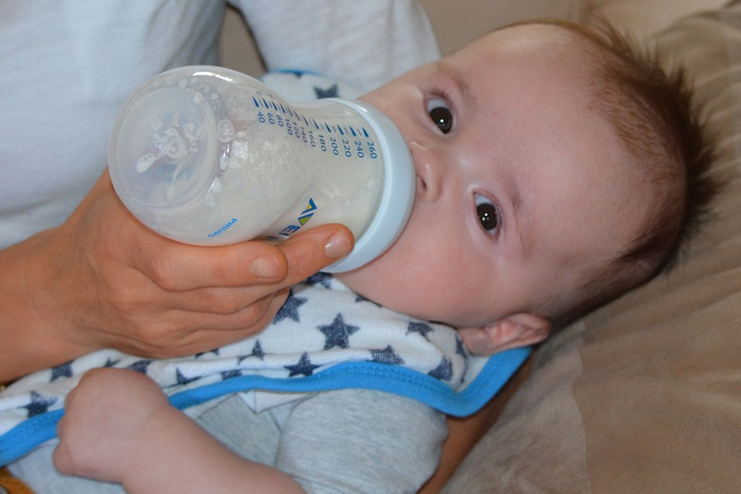
There are some of the effects of weaning on children also-
1. Food Allergies:
This all depends upon one baby to another but it is very much important point to focus. The babies get to allergies to certain food. The chance of food allergies is more babies than older children. At least at the initial stage of development.
In two cases the chance of food allergies is more in babies that are in family history and if the child has eczema.
There is no evidence that certain food after 6 months of age will prevent allergies. Whereas some of the studies has found that a variety of food earlier than 6 months may prevent food allergies. (R)
There is some evidence to support the evidence that introducing certain foods after 6 months of age will prevent allergies.
2. Chocking:
This is one of the significant concern while starting or exposing the solid food to the baby. The gagging act as a safety reflex to prevent the babies from chocking. Chocking is a more serious issue in babies.
This happens when the food blocks the airways which as a result the baby can’t breathe properly. There are certain signs that you can observe if the child is suffering from chocking, such as-
- turning blue,
- silence and inability to make noise.
- coughing or
- lose consciousness in severe case.
Weaning is one of the natural and common stages of baby’s development in the initial stage of life. It is a transformation stage of giving or exposing different solid food than of breast milk. I hope this article has given you all the information about weaning guidelines and the process of weaning toddlers from breastfeeding.










































